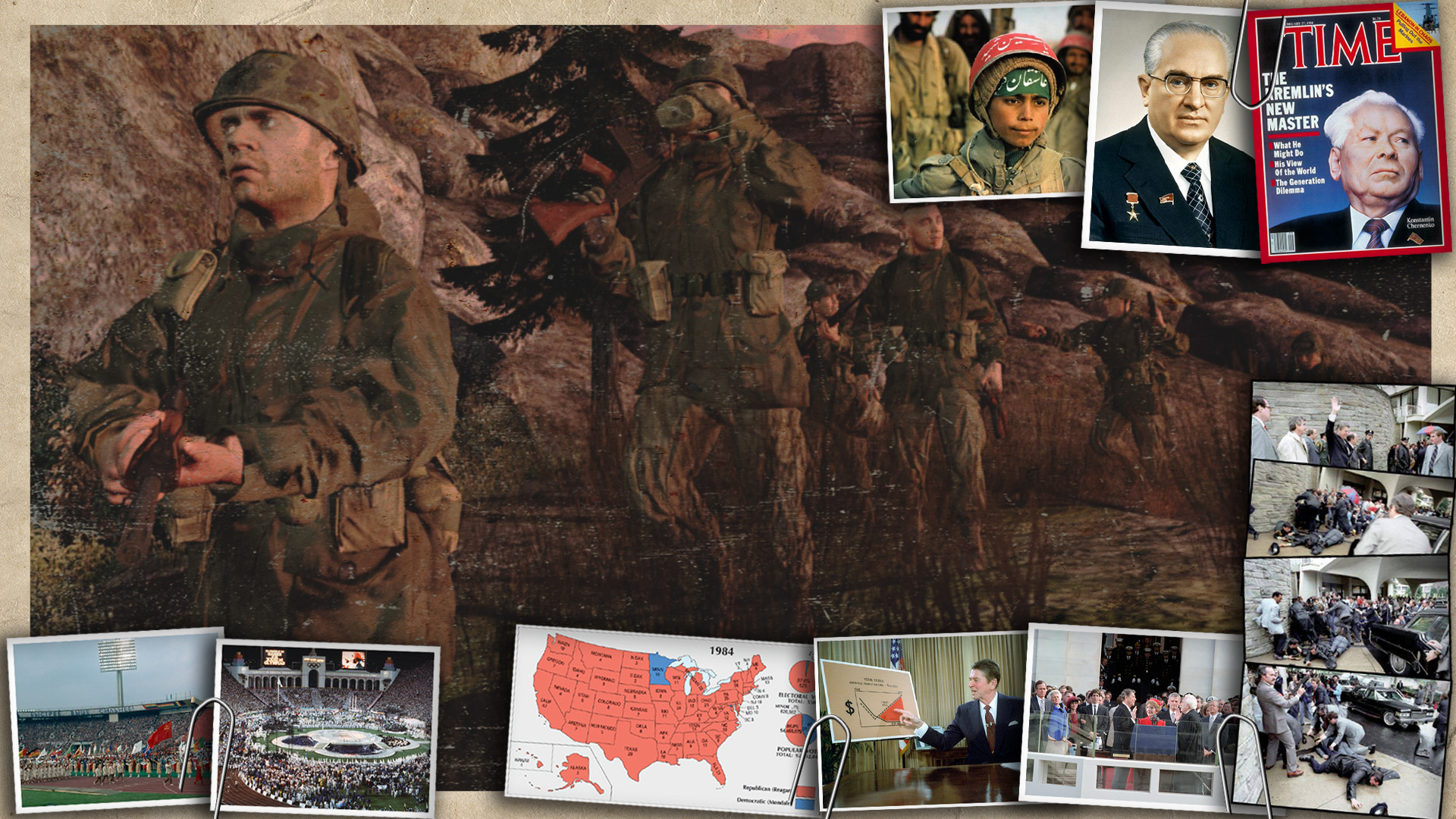HOME | DD
 ubaldofoxy — The 1980s: Part 1 - Wars, Rebirth and the Olympics
ubaldofoxy — The 1980s: Part 1 - Wars, Rebirth and the Olympics

#gmod #alternatehistory #freedomfighters #garrysmod #military #storytelling #editingphotoshop #garrysmodgmod
Published: 2023-07-19 23:04:29 +0000 UTC; Views: 2978; Favourites: 31; Downloads: 1
Redirect to original
Description
the ninth commission requested by www.deviantart.com/carminesava… has arrived, and as always we thank him for the title and description of the image.sequel of this picture:www.deviantart.com/ubaldofoxy/…
- STORYLINE -
The 1980s are a revolutionary decade. Technology improves, Pop culture evolves and life is as vibrant as it is. However, what doesn't change is war, like the one in Afghanistan of which the Soviet Union now faces a massive resistance of Afghan rebel groups. And so, as the cold war reaches 1980s, we see now what these years will bring to the world.
1980
The Olympic Games take place in Moscow. However, some states like the US boycott the event in response to the Soviet invasion of Afghanistan. Some time later, in September the 22nd, the Iraqi air force bombs several Iranian cities. The following day, Iraqi infantry units begin their attack in Iran thus starting the Iraq-Iran war.
1981
The Iranian hostage crisis ends the moment Ronald Reagan is sworn in as President of the United States. On that same year, President Reagan is wounded in an assassination attempt in NYC.
1982
In Argentina, the dictatorship under Leopoldo Galtieri is slowly losing it's grip of the country as popular dissent begins to spread amongst all Argentinians. The dictatorship needs something to save face and even the popular consent. Now, in our timeline, this led to a war against the British in the Falkland Island, or the Malvinas as the South Americans call it. However, in this timeline, when Britain turned communist in 1953, Argentina quickly used the new shift in power to snatch the Malvinas away from England. So, this situation leads to another war. In 1978, both Argentina and Chile fought in border skirmishes over the possession of Picton, Lennox and Nueva islands and the scope of the maritime jurisdiction associated with those islands. This conflict was known as the Beagle Conflict. During that time, a plan was prepared by the Argentinians. Operation Soberanía was an Argentinian war plan against Chile to use when the time was right. Instead, the war plan was scrapped and a shaky negotiation was signed. But now, for a "matter of national security", Argentina would take any step to save the status quo... Even if it means to start a new war. On April the 2nd, Argentina goes to war against Pinochet's Chile. At the beginning, Chile takes a defensive stance against Argentina and for a while, this tactic works. But then, Argentina calls both Peru and Bolivia into the conflict in exchange for some land grab, to which both countries accept almost immediately. The only ally that Pinochet has is Ecuador, to which they join the fight against Argentina and it's allies by making some gains in the north of Peru. The WTO is shocked by the rapid development, since South America is now turning into a giant powder keg. A powder keg that the Soviet could use at their advantage. With that, the US and Canada prepare a peace agreement of which the countries at war, as both sides are feeling the protests of their own people who demand this senseless war to end, have no choice but to sign. After the war ends, political instability hits the countries that participated in it. Mostly, Argentina and Chile. Like in our timeline, the Argentinians take it to the streets and the uproar of this failed conflict is so big that the dictatorship has no choice but to resign. With that, democracy finally returns in Argentina. As for Chile, the same thing happens but it's more of a bloody mess. Pinochet does what he knows best and thousands of protesters are beaten, arrested and killed. Some higher-ups in the military have enough of Pinochet's way of doing things. The day following the massacre, a coup by the military deposes Pinochet and by promising a return to democracy and after freeing thousands of people detained by the regime, this coup is taken very well. Gualtieri is sent to prison and he stays there before he gets pardoned in 1988 while Pinochet, inside his prison cell as he awaits trial alongside a good part of the military for his crimes, commits suicide by hanging himself. What also happened this year was that Leonid Brezhnev died. Yuri Andropov becomes the new General Secretary of the USSR.
1983
Despite the questionable invasion of Grenada, President Reagan's policies ends the decades of US decline.
1984
Just like four years ago, the Soviet Union and most of the Warsaw Pact boycotted that year's Summer Olympic Games in Los Angeles. Then, after 15 months of rule, Yuri Andropov dies and Konstantin Chernenko takes his place. Meanwhile, in the US, President Reagan is sworn for a 2nd term.
As we would reach the second part of the 1980s, change would come in a way no one ever expected.

























